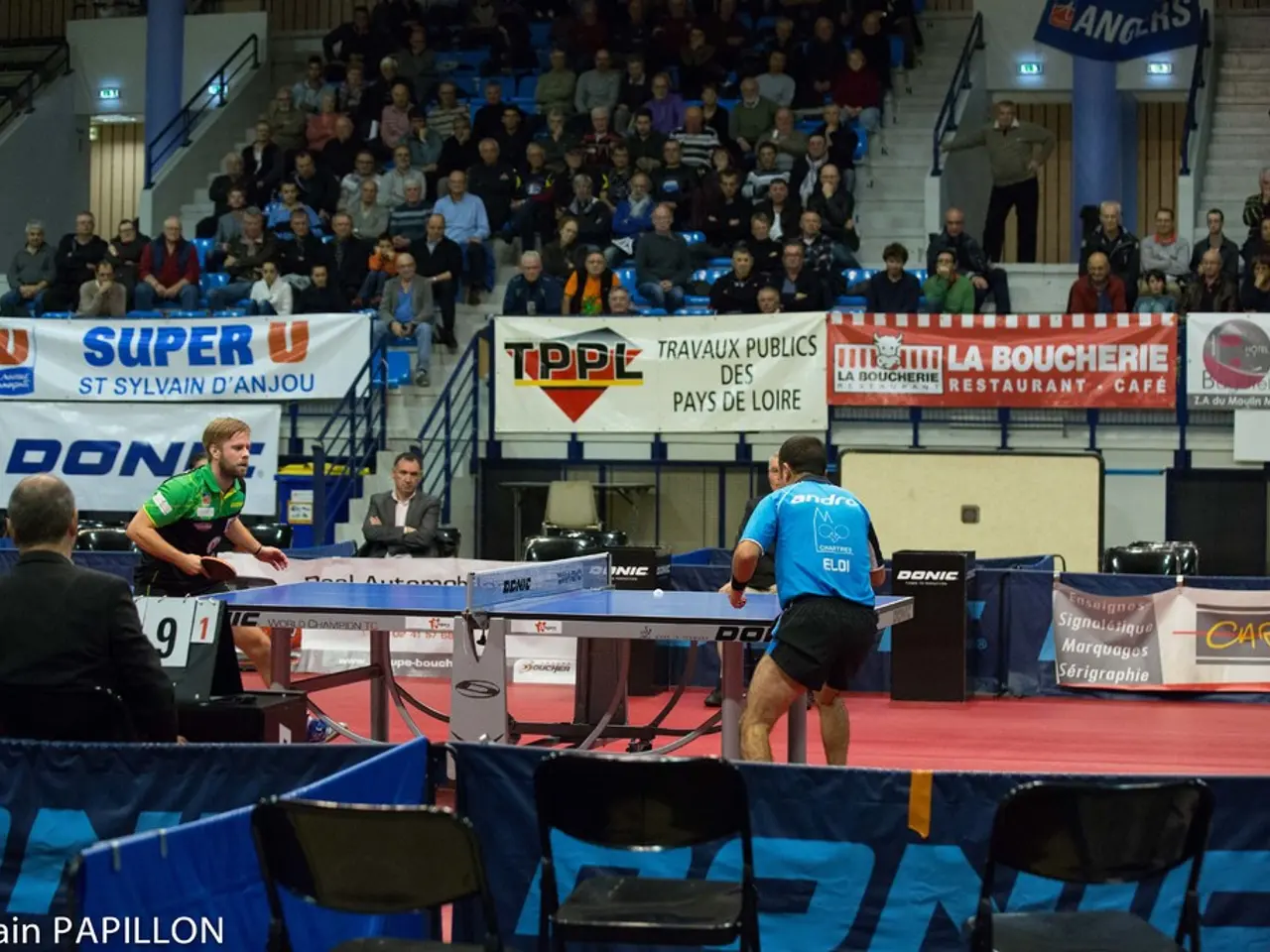Gambling on Darts: A Comprehensive Guide to Betting Variations and Bookmakers
===================================================================================
In recent years, darts has gained significant worldwide popularity, particularly in the German-speaking world. This dynamic sport, with its unique scoring system and intense mental play, offers numerous opportunities to use one's knowledge sensibly and potentially achieve a profit.
Matches are typically played in a specific number of legs or sets, with the player who wins the most deciding the match. The scoring system in darts is unique, with each throw having a maximum of 180 points if all three darts land in the triple-20 segment.
Successful darts betting strategies centre on thorough research, specialized market focus, and managing bets to balance risk and reward. Here are six key strategic approaches:
- In-depth Research and Player Form Analysis: Staying updated on player performance, recent results, and head-to-head records is crucial. Following major darts events and players’ social media or forums helps identify strong contenders and emerging dark horses.
- Specializing in Specific Markets: Focusing on particular bet types—such as handicap (spread) bets on legs or sets, prop bets, or outright winners—can exploit value, especially when odds for outright wins are skewed towards favourites.
- Using Spread or Handicap Betting: When a favourite is likely to dominate, betting on leg or set handicaps can provide better returns versus straightforward match winner bets.
- Effective Bankroll and Bet Size Management: Setting a clear budget and employing proportional staking depending on the risk level of bets avoids quick losses. For instance, smaller stakes on high-risk outcomes and larger on more consistent performers maintain a balanced exposure.
- Watching Matches and Using Data Tools: Observing live matches or recorded performances and leveraging statistical tools enhance prediction accuracy.
- Experimenting with Parlays and Multiple Bets: Combining bets on multiple players or outcomes can diversify risk but requires careful sizing to avoid overexposure.
Regarding game formats, darts matches vary in length (legs, sets), tournament structure (knockout, round robin), and rules, which influence betting strategies. Shorter formats can increase volatility, favouring underdogs and affecting hedge and live betting opportunities. Major tournaments with longer formats allow top players to assert dominance, potentially making outright winner bets more reliable but sometimes offering lower odds.
The World Championship, held in London's Alexandra Palace, is a high-pressure event where underdogs can pull off surprising upsets. Other major events offering good betting options include the Darts World Championship, the Grand Slam of Darts, and the Players Championship Finals. The Premier League Darts, held over several weeks in different cities, allows observation of player form over a longer period.
Darts offers a variety of betting markets beyond just betting on win or lose, including handicap bets, exact results, and bets on individual legs, number of 180s, and checkout odds. In a best-of-15-legs match between an established top player and a talented newcomer, betting on the favourite's quick start and total number of 180s can be a strategic approach.
When placing live bets, it's important to pay attention to how securely players play on the double fields. Neglecting the game format can lead to mistakes in darts betting, as each tournament has its own peculiarities. A flexible approach, reassessing during the game, and recognizing potential shifts can make darts betting exciting and potentially profitable.
In summary, darts betting success depends on combining detailed player and event analysis with disciplined bankroll management and adapting to the nuances of various game formats to identify value bets and manage risk effectively.
Sports-betting on darts can be a profitable venture, given the unique scoring system and mental intensity the sport presents. Successful betting strategies in darts involve thorough research on player forms, specializing in specific markets, and managing bets to balance risk and reward, such as using spread or handicap betting, effective bankroll management, watching matches, and experimenting with parlays.




